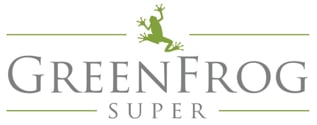New Rules helping employees save tax in 2018 with Personal Super Contributions

With the eligibility conditions being relaxed on who can make personal, tax deductible (concessional) super contributions, it may be worthwhile to consider if you can benefit from the changes.
Prior to 1 July 2017, if you weren’t self-employed you were generally unable to make personal, tax-deductible contributions to super with your ‘take home’ pay. The only tax effective way to get extra money into super was to opt for salary sacrificing, which wasn’t always viable. Recently, changes have been made to super contributions to exclude the requirement that wages could not exceed 10% of your total assessable income. This means that from the 2018 financial year onwards, it is possible to reduce your personal tax by making deductible super contributions.
Scenario
As an example, Sarah has taxable income of $75,000, made up of $73,000 in wages and $2,000 in net investment income. In the past she would have been unable to make a personal deductible contribution to super because of the old 10% rule, but now she can.
Assuming she has $5,000 to contribute and receive a tax deduction for, her tax would be affected in the following ways:
| Personal Tax Return | Super Fund’s Tax Return |
| $5,000 deduction | $5,000 contribution |
| Saves $1,725 in tax | Pays $750 in tax |
| Tax savings of 34.5%* (*32.5% marginal rate of tax + 2% Medicare levy) | Tax payable of 15% |
Overall, she benefits by $975 and the contributed money would be in the superannuation environment where its earnings are taxed at 15% rather than the potentially higher personal marginal rates.
Other things to consider
From a tax perspective there is a benefit whenever the personal rate of tax is higher than the 15% rate of tax that the super fund will incur. However, there are other things to keep in mind when deciding whether or not it’s a good idea to make a voluntary personal contribution. These include:
Personal Liquidity/Future Access to the Money
Once money is contributed to super it cannot be easily withdrawn. If those funds are subsequently needed for personal use they cannot be accessed until a condition of release has been met. This is generally retirement after preservation age or turning 65 or if eligible for release under the First Home Super Saver Scheme*.
Concessional Contribution Cap
Currently there is a $25,000 limit to the amount of money that can be contributed to super where a tax deduction is being claimed by the contributor. These are referred to as concessional contributions and include:
- Employer contributions
- Any amount you salary sacrifice into super
- Personal contributions you claim as a personal super contribution deduction
Consideration needs to be given to the total dollar value being contributed into super for the year on your behalf; not just the amount that qualifies for a personal tax deduction.
Tip: Consider also the timing of contributions. Often the employer will pay the June quarter contribution in June rather than in July when it is due. The timing of receipt into the Super Fund’s bank account affects the year in which it is counted towards the contribution cap and when it is available as a tax deduction. The contribution must be received by the super fund on or before 30 June for a deduction to be claimed in the same financial year.
Documentation Needed
If you want to claim a tax deduction your super fund needs to receive a completed Notice of intent to claim a deduction form within the required timeframe. You need to receive an acknowledgement of this notice before you lodge your tax return for the relevant year. Without that acknowledgement a tax deduction cannot be claimed.
- If the contribution is being made to an industry or retail fund you may need to make enquiries regarding how they need to be notified of the personal concessional contribution.
- If the contribution is being made to a SMSF you need to ensure that both the Notice of intent and acknowledgement forms are completed. These forms can be found on our website using the links below:
Notice of Intent to Claim (also available on the ATO Website)
Age restrictions
If you are under 18 years of age you can only claim a deduction for your personal super contributions if you earned income as an employee or a business operator; not as passive investment or distribution income.
If you are 75 years of age or older, you can only claim a deduction for contributions you made on or before the 28th day of the month following the month of your 75th birthday. There is also a work test for contributions made after turning 65.
*First Home Super Saver (FHSS) Scheme
From 1 July 2017 the FHSS Scheme allows people to save money for a first home inside their superannuation fund. A voluntary contribution to super, whether concessional (tax-deductible) or nonconcessional (non tax-deductible) may be able to be released at a later date if certain eligibility requirements are met. Further information can be obtained on the ATO website.
By Karen Barnes – Green Frog Super
Disclaimer:
We are not financial advisers. The information in this article is general in nature and does not constitute financial advice. It has been prepared without taking your personal circumstances into consideration. Before acting on any information you should assess or seek advice from a licenced financial adviser on whether it is appropriate for your situation and objectives.



